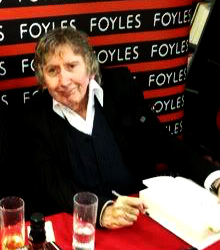A Quote by Omar Amanat
It doesn't matter whether the market is up or down. All the day traders want is volatility.
Related Quotes
I say to people that it's a choice that we make every day in our lives. Doesn't matter what you're going through. You don't have to be going through what I went through. But it's whether you decide to get up or stay down, whether you say 'yes' or whether you say 'no' to life. Basically, I decided to say, 'Yes.'
The truth is that once you get down on the trading floor, you find that the traders come from all walks of life. You don't have to be a rocket scientist to be a trader. In fact, some of the best traders whom I knew down on the floor were surf bums. Formal education didn't really seem to have much to do with a person's skill as a trader.
Having observed his market calls real time over the years, I can say that Jason Perl's application of the DeMark Indicators distinguishes his work from industry peers when it comes to market timing. This book demonstrates how traders can benefit from his insight, using the studies to identify the exhaustion of established trends or the onset of new ones. Whether you're fundamentally or technically inclined, Perl's DeMark Indicators is an invaluable trading resource.



































